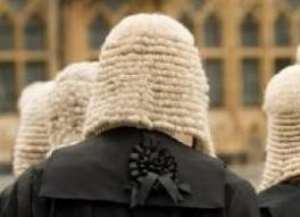
The Ghana Bar Association (GBA) — once a towering defender of constitutionalism and democracy — is today a shadow of its former self, riddled with contradictions and tainted by partisan loyalties. Its recent conduct surrounding the suspension and impeachment process of the Chief Justice reveals a disturbing truth: the GBA is dangerously close to abandoning its sacred duty to the rule of law.
In a span of barely 48 hours, the GBA issued two conflicting press statements. This is not just embarrassing; it is an indictment on the integrity and independence of the Association. An organization entrusted to safeguard legal principles cannot afford to speak from both sides of its mouth, depending on whose political interests are at stake.
Even more alarming is the GBA’s astonishing call for the President to reinstate the suspended Chief Justice — without offering any credible constitutional basis for this demand. Where in the 1992 Constitution does the GBA find support for such an action? Their statement, devoid of serious legal argument, reeks of political expediency rather than legal reasoning.
This selective outrage exposes a double standard that cannot be ignored. When the Commissioner for Human Rights and Administrative Justice, and later the Chairperson and deputies of the Electoral Commission, were removed from office, the constitutional process unfolded without the GBA leading any partisan crusade. Why, then, is the Association now inserting itself so aggressively in this matter? Who benefits from this sudden urgency?
Where was the GBA when the people of SALL (Santrokofi, Akpafu, Likpe, and Lolobi) were denied parliamentary representation for four long years? Was it not a blatant violation of democratic rights that warranted a loud and forceful response from the GBA? Where was the Association’s voice when the will of the people of Techiman South was shamelessly trampled upon, resulting in the tragic deaths of eight innocent Ghanaians during the 2020 general elections? And why has the GBA maintained a deafening silence while galamsey operations have wreaked havoc on our lands, waters, and communities for years on end?
The answer is clear to any discerning mind: partisan interests are driving the GBA’s current posture, not a principled commitment to justice.
Let it be said plainly: the Constitution of Ghana is bigger than any individual, no matter how highly placed. The processes outlined for impeachment or removal are there for a reason — to protect our democracy from capriciousness and lawlessness. The GBA, of all bodies, should know better than to undermine these processes with reckless press statements and political pandering.
At a time when public confidence in institutions is already dangerously low, the GBA must choose which side of history it wants to be on. Will it be remembered as a partisan tool wielded by political operatives, or as a bulwark for the rule of law and justice?
Ghanaians are watching. And they deserve better.


